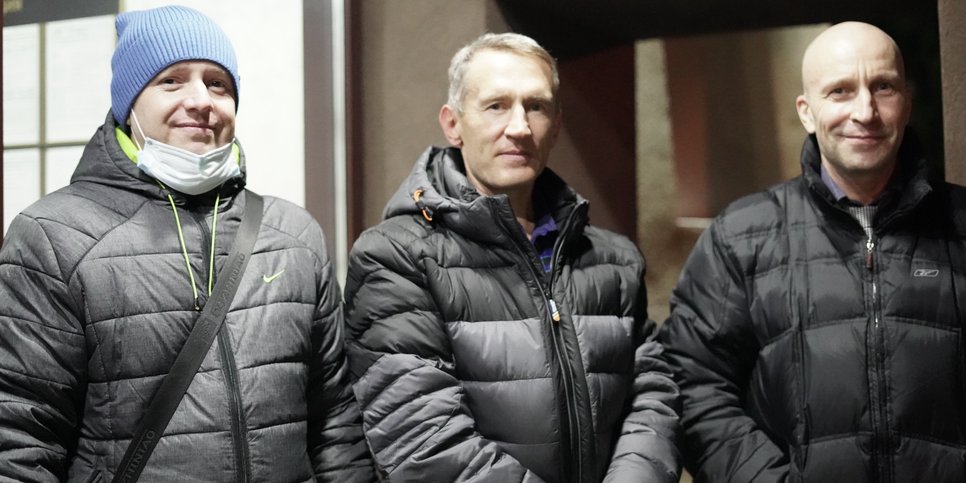From left to right: Aleksandr Rakovskiy, Aleksandr Vavilov, Aleksey Oreshkov. November 2021
From left to right: Aleksandr Rakovskiy, Aleksandr Vavilov, Aleksey Oreshkov. November 2021
The Court of Cassation in Saratov Did Not Change the Sentence of Three Jehovah's Witnesses From Pavlovo. They continue to serve suspended sentences for practicing their religion
Nizhegorod RegionOn December 22, 2022, the First Court of Cassation of General Jurisdiction in Saratov considered the appeals of Aleksandr Vavilov, Aleksey Oreshkov and Aleksandr Rakovskiy, but did not change the verdict—3-year suspended sentence each.
All three disagree with the court decision court and consider themselves not guilty. In their appeals, they stated: "We were convicted not of a crime, but for expressing our faith in ways typical of Christianity and permitted by law." The believers noted that, it became clear from the hearings in the court of first instance, that "in order to pass a guilty verdict, the court did not need any facts or evidence" of guilt .
The verdict in the case of Vavilov, Oreshkov and Rakovskiy was handed down in October 2021 and entered into force after an appeal in January 2022. The courts of all three instances considered that conducting religious meetings and services by Jehovah's Witnesses could be equated with extremism, without specific facts of illegal activity.
Such a position of the courts contradicts both the decisions of the Supreme Court of the Russian Federation and the recent ruling of the ECHR regarding Jehovah's Witnesses in Russia. In particular, the European Court emphasized that “only religious expressions and actions containing violence, manifestations of hatred or discrimination, or calling for them, can serve as a basis for suppressing them as 'extremist' . . . The courts did not identify a single word, deed or action of the applicants, which would be motivated by violence, hatred or discrimination against others, or which would be tainted by violence, hatred or discrimination” (§271).
At the moment, in the Nizhny Novgorod Region two more similar criminal cases against Jehovah's Witnesses are being considered in courts.



